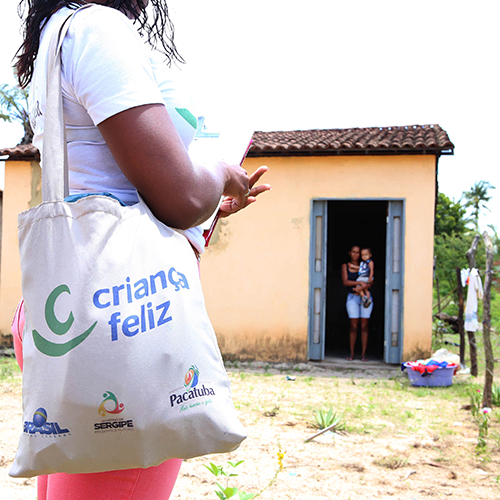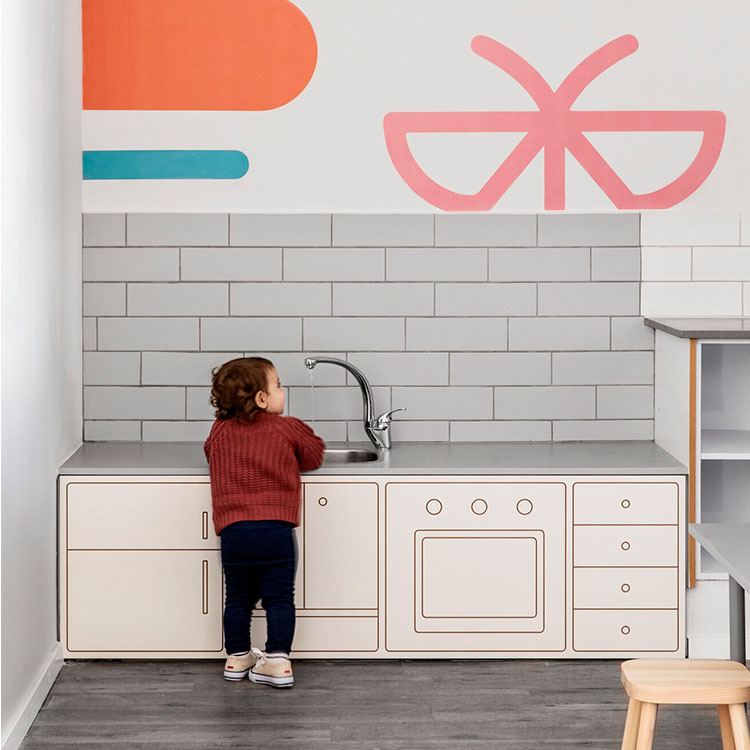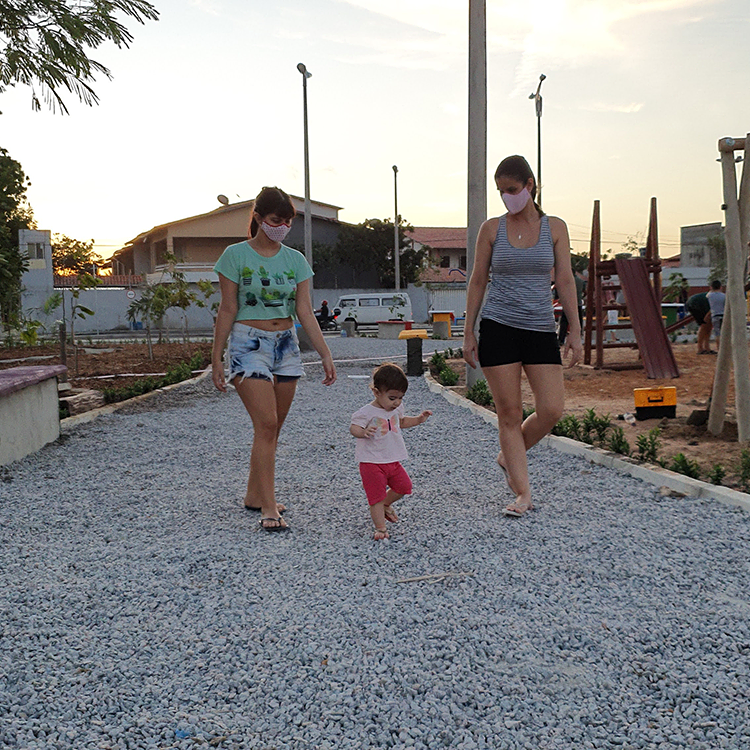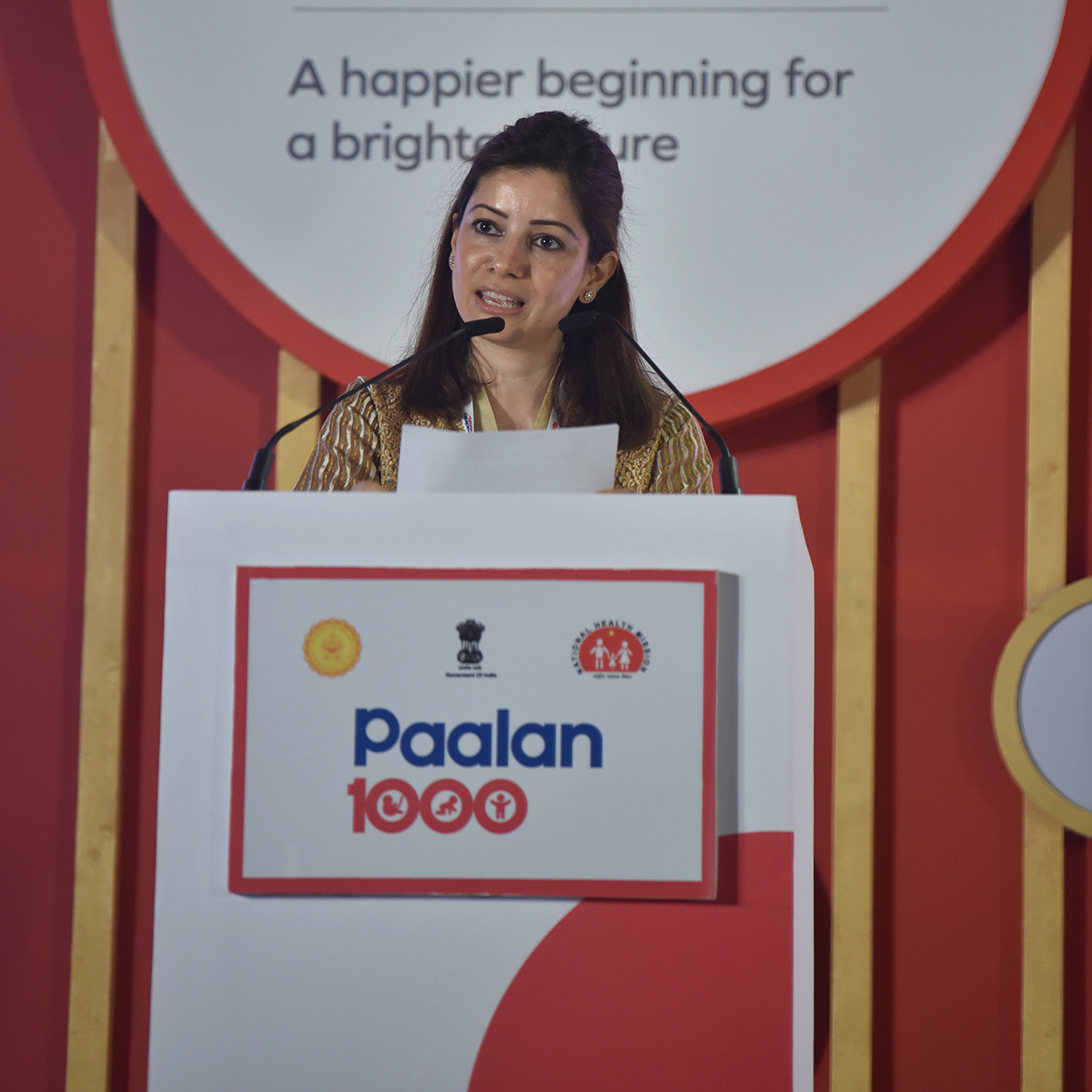Despite the limitations imposed by the COVID-19 pandemic, the Happy Child Programme (Programa Criança Feliz) is positively perceived by Brazilian caregivers, who continue to be supported by the initiative via visits with physical distance and online interactions.
This is the conclusion of a new report released by UNDP Brazil and the Bernard van Leer Foundation. The report evaluated the behavioural changes brought about by the federal Happy Child Programme which aims to boost early childhood development.
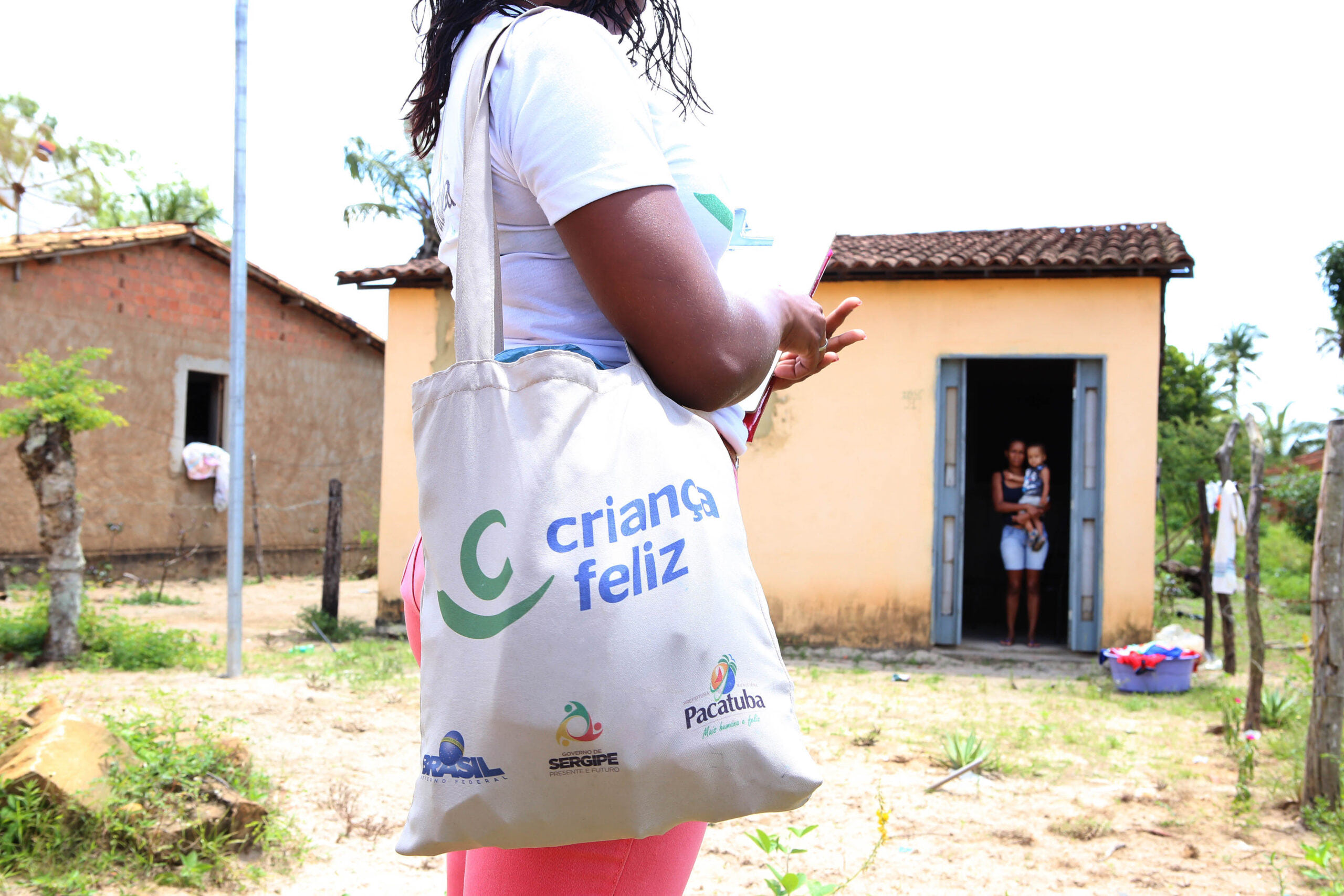
Photo: Courtesy of Mauro Vieira/Criança Feliz
Financed through the partnership between the two organisations and under direct supervision of the Brazilian Ministry of Citizenship, the survey analysed the adoption of new childcare practices as well as the quality of interactions between home visitors and caregivers.
More than 120 caregivers, home visitors, supervisors, family members and community leaders of six municipalities were interviewed for the survey.
The conclusions of the report indicated that the programme improved children’s and caregivers’ communication skills; intensified family bonds and increased awareness of the importance of early childhood development.
Mothers, fathers or caregivers emphasized the programme’s contributions to children’s development, including better motor coordination.
In the midst of the COVID-19 pandemic, programme home visitors have been providing remote assistance or, in the case of those families with no access to the Internet, home visits with physical distance (at the doorsteps of homes).
The home visitors conduct communication activities for the children, seek to improve motor, language, cognitive and socio-emotional skills and strengthen bonds between caregiver and child.
According to the Ministry of Citizenship, the Happy Child Programme currently serves 888,000 children in 2,700 municipalities. The beneficiaries are pregnant women and children up to age 6, focusing on households living in poverty.
The report also stated that parents consider WhatsApp an accessible mean of communication with home visitors. The platform is used to share photos, texts and videos indicating home activities to be carried out with the children. However, they said WhatsApp should only be considered a complementary tool, not a substitute for in-person visits.
The interviewees also claimed to perfectly understand the activities suggested by home visitors, which include playing with everyday objects in the residence. Parents also said they built relationships with the programme professionals, being closer to those who also have children.
The research mentioned the difficulties faced by many families, such as the lack of time availability, mainly due to the workload of mothers. In addition, many families live in households with limited physical space; and there is a low engagement of men in playing with the children.
Women mainly held the role of the primary caregiver in all of the municipalities studied. In addition to being responsible for the care of children, they are also in charge of domestic activities and some of them also have jobs. This mothers’ burden was identified as a difficulty for many of them and, in some cases, as a barrier to carrying out the recommended activities with their children.
In view of the data collected, the document recommended the expansion of the programme, in order to serve a greater number of families; the inclusion of siblings and men in the activities.
Other recommendations include making cars available to teams of home visitors, who are often unable to visit places that are hard to reach, and increasing the frequency and variety of training courses for those professionals.
The information collected is expected to support the planning and execution of the Happy Child Programme’s activities in the coming years.
“UNDP has been a key supporter of the Happy Child Programme since its inception and is directly involved in impact assessment actions, training in states and municipalities and training of civil servants,” said UNDP programme officer Maria Teresa Amaral Fontes.
“We consider UNDP’s support for the Happy Child Programme as an opportunity to look at early childhood as a priority and indispensable theme for the achievement of human development, seeking to bring those children in vulnerable situations to the center of actions.”
UNDP Brazil and the Bernard van Leer Foundation signed a partnership to promote actions and activities that contribute to the development of the Happy Child Programme and public policies aimed at early childhood.
“The research aimed to look at the change in caregivers’ behavior, especially when bathing, sleeping and feeding the children, but it ended up revealing much more,” said the Bernard van Leer Foundation representative in Brazil, Claudia Vidigal.
“We found challenges and opportunities for the programme, which will help us strengthen the programme’s fronts, the performance of home visitors and, especially, the care and attention given to early childhood, in the families’ daily lives.”
Both organizations support initiatives focused on strengthening the institutional capacity of the Ministry of Citizenship, in order to provide evidence, monitor and evaluate the programme.
Access the full report (in Portuguese).
This blog is written by UNDP Brasil and is translated and republished with permission. The original blog in Portuguese can be read here.
